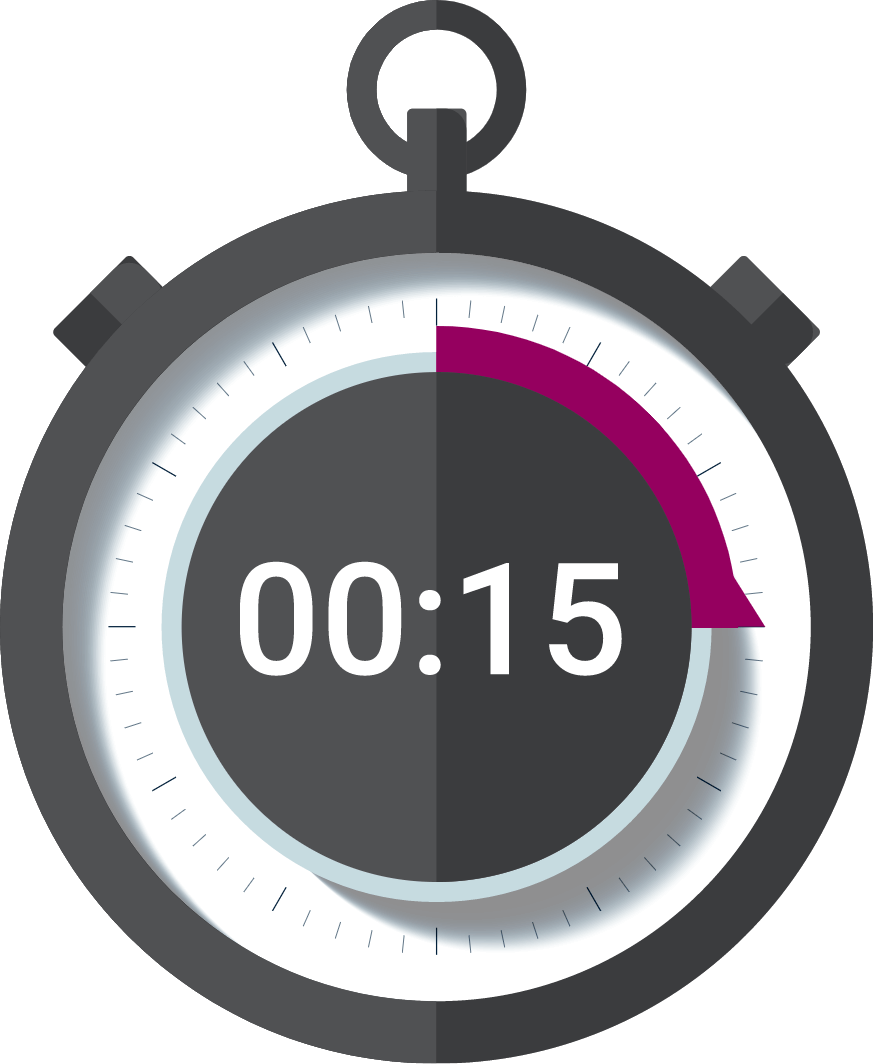SITE IS FOR U.S. RESIDENTS ONLY
SITE IS FOR U.S. RESIDENTS ONLY
Save on your CAMBIA prescriptions. Restrictions apply (access may be limited due to insurance coverage).

Consult online with an independent, licensed healthcare provider who will work with you to gain access to an appropriate prescription for your migraines.

In a clinical study of CAMBIA 50-mg, it worked quickly—in as little as 15 minutes in some patients1

Significantly more patients became pain- and symptom-free (nausea, sensitivity to light, and sensitivity to sound) at 2 hours with CAMBIA (diclofenac potassium), for oral solution, versus placebo in 2 studies.1-3

See how Erin uses CAMBIA and how to take it.
See how Erin uses CAMBIA and how to take it.

CAMBIA is designed to help your body absorb
the medicine.1,4
Empty 1 packet of CAMBIA 50-mg into 1 to 2 ounces of
water. Mix well and drink the mixture immediately.2
CAMBIA is a non-steroidal anti-inflammatory drug (NSAID). NSAIDs cause an increased risk of a heart attack or stroke that can lead to death. This chance is higher with longer use of NSAID medicines and in people who have heart disease. CAMBIA should never be used right before or after a heart surgery called a “coronary artery bypass graft (CABG)”.
NSAID medicines cause an increased risk of stomach and intestine problems, such as ulcers and bleeding, which can happen without warning and may cause death. This risk increases with use of steroids (corticosteroids), blood thinners (anticoagulants), smoking, alcohol use, older age, for those in poor health, advanced liver disease, and bleeding problems.
CAMBIA (diclofenac potassium) for oral solution is a prescription medicine used to treat acute migraine attacks, with or without aura, in adults.
Limitations of Use
CAMBIA (diclofenac potassium), for oral solution is an NSAID.
NSAIDs can cause serious side effects including, increased risk of a heart attack or stroke that can lead to death. This risk may happen early in treatment and may increase with increasing doses of NSAIDs and with longer use of NSAIDs.
NSAIDs can also cause increased risk of bleeding, ulcers, and tears (perforation) of the esophagus (tube leading from the mouth to the stomach), stomach and intestines which may occur anytime during use, without warning symptoms, and may cause death.
The risk of getting an ulcer or bleeding also increases with:
See the Boxed Warning: Risk of Serious Cardiovascular and Gastrointestinal Events
Do not take CAMBIA right before or after a heart surgery called a "coronary artery bypass graft (CABG)."
Do not take CAMBIA after a recent heart attack, unless your healthcare provider tells you to. You may have an increased risk of another heart attack if you take NSAIDs after a recent heart attack.
CAMBIA (diclofenac potassium) for oral solution is a prescription medicine used to treat acute migraine attacks, with or without aura, in adults.
Other side effects of NSAIDs include: stomach pain, constipation, diarrhea, gas, heartburn, nausea, vomiting, and dizziness.
Most common side effects with CAMBIA include: nausea and dizziness.
Get emergency help right away if you get any of the following symptoms:
These are not all the possible side effects of NSAIDs. For more information, ask your healthcare provider or pharmacist about NSAIDs.
Call your doctor for medical advice about side effects. You may report side effects to FDA at 1-800-FDA-1088.
Please see full Prescribing Information including Boxed Warning and Medication Guide, at www.CambiaRx.com/PI.
References: 1. Diener HC, Montagna P, Gács G, et al. Efficacy and tolerability of diclofenac potassium sachets in migraine: a randomized, double-blind, cross-over study in comparison with diclofenac potassium tablets and placebo. Cephalalgia. 2006;26(5):537-547. 2. CAMBIA [package insert]. Lake Forest, IL: Assertio Therapeutics, Inc.; 2017. 3. Lipton RB, Grosberg B, Singer RP, et al. Efficacy and tolerability of a new powdered formulation of diclofenac potassium for oral solution for the acute treatment of migraine: results from the International Migraine Pain Assessment Clinical Trial (IMPACT). Cephalalgia. 2010;30(11):1336-1345. 4. Chen C, Bujanover S, Kareht S, Rapoport AM. Differential pharmacokinetics of diclofenac potassium for oral solution vs immediate-release tablets from a randomized trial: effect of fed and fasting conditions. Headache. 2015;55(2):265-275.
CAMBIA® and the CAMBIA logo are registered trademarks of Assertio Therapeutics.
CAMBIA is a non-steroidal anti-inflammatory drug (NSAID). NSAIDs cause an increased risk of a heart attack or stroke that can lead to death. This chance is higher with longer use of NSAID medicines and in people who have heart disease. CAMBIA should never be used right before or after a heart surgery called a “coronary artery bypass graft (CABG)”.
NSAID medicines cause an increased risk of stomach and intestine problems, such as ulcers and bleeding, which can happen without warning and may cause death. This risk increases with use of steroids (corticosteroids), blood thinners (anticoagulants), smoking, alcohol use, older age, for those in poor health, advanced liver disease, and bleeding problems.
CAMBIA (diclofenac potassium) for oral solution is a prescription medicine used to treat acute migraine attacks, with or without aura, in adults.
Limitations of Use
CAMBIA (diclofenac potassium), for oral solution is an NSAID.
NSAIDs can cause serious side effects including, increased risk of a heart attack or stroke that can lead to death. This risk may happen early in treatment and may increase with increasing doses of NSAIDs and with longer use of NSAIDs.
NSAIDs can also cause increased risk of bleeding, ulcers, and tears (perforation) of the esophagus (tube leading from the mouth to the stomach), stomach and intestines which may occur anytime during use, without warning symptoms, and may cause death.
The risk of getting an ulcer or bleeding also increases with:
See the Boxed Warning: Risk of Serious Cardiovascular and Gastrointestinal Events
Do not take CAMBIA right before or after a heart surgery called a "coronary artery bypass graft (CABG)."
Do not take CAMBIA after a recent heart attack, unless your healthcare provider tells you to. You may have an increased risk of another heart attack if you take NSAIDs after a recent heart attack.
CAMBIA (diclofenac potassium) for oral solution is a prescription medicine used to treat acute migraine attacks, with or without aura, in adults.
Other side effects of NSAIDs include: stomach pain, constipation, diarrhea, gas, heartburn, nausea, vomiting, and dizziness.
Most common side effects with CAMBIA include: nausea and dizziness.
Get emergency help right away if you get any of the following symptoms:
These are not all the possible side effects of NSAIDs. For more information, ask your healthcare provider or pharmacist about NSAIDs.
Call your doctor for medical advice about side effects. You may report side effects to FDA at 1-800-FDA-1088.
Please see full Prescribing Information including Boxed Warning and Medication Guide, at www.CambiaRx.com/PI.
References: 1. Diener HC, Montagna P, Gács G, et al. Efficacy and tolerability of diclofenac potassium sachets in migraine: a randomized, double-blind, cross-over study in comparison with diclofenac potassium tablets and placebo. Cephalalgia. 2006;26(5):537-547. 2. CAMBIA [package insert]. Lake Forest, IL: Assertio Therapeutics, Inc.; 2017. 3. Lipton RB, Grosberg B, Singer RP, et al. Efficacy and tolerability of a new powdered formulation of diclofenac potassium for oral solution for the acute treatment of migraine: results from the International Migraine Pain Assessment Clinical Trial (IMPACT). Cephalalgia. 2010;30(11):1336-1345. 4. Chen C, Bujanover S, Kareht S, Rapoport AM. Differential pharmacokinetics of diclofenac potassium for oral solution vs immediate-release tablets from a randomized trial: effect of fed and fasting conditions. Headache. 2015;55(2):265-275.
CAMBIA® and the CAMBIA logo are registered trademarks of Assertio Therapeutics.
